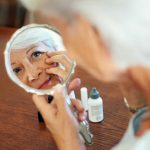1. The Connection Between Nutrition and Skin Health
Many people focus on skincare products, but what you eat plays a big role in how your skin looks and feels. Science shows that the nutrients in your diet can directly affect your skin’s appearance, texture, and even how fast it ages. Your skin is the largest organ of your body, and like every other organ, it needs proper nutrition to function well.
How Diet Impacts Your Skin
Your skin is constantly renewing itself, and it needs a steady supply of vitamins, minerals, proteins, and healthy fats to stay strong and radiant. Poor nutrition can lead to dullness, dryness, breakouts, or early signs of aging. On the flip side, a balanced diet packed with essential nutrients helps support skin repair, hydration, and protection from environmental stressors like UV rays or pollution.
Essential Nutrients for Healthy Skin
The table below highlights some of the key nutrients that benefit the skin and where you can find them:
| Nutrient | Skin Benefits | Common Food Sources |
|---|---|---|
| Vitamin C | Boosts collagen production; helps reduce wrinkles | Citrus fruits, strawberries, bell peppers |
| Vitamin E | Protects against sun damage; supports healing | Almonds, sunflower seeds, spinach |
| Omega-3 Fatty Acids | Reduces inflammation; keeps skin moisturized | Salmon, walnuts, flaxseeds |
| Zinc | Helps control oil production; supports wound healing | Pumpkin seeds, chickpeas, beef |
| Vitamin A | Supports cell turnover; helps prevent acne | Sweet potatoes, carrots, leafy greens |
The Role of Hydration
Water is just as important as nutrients when it comes to skin health. Staying well-hydrated helps maintain your skin’s elasticity and flushes out toxins that can cause breakouts or dullness. Most experts recommend drinking around eight 8-ounce glasses of water a day—more if youre active or live in a hot climate.
A Balanced Diet Means Balanced Skin
A healthy diet isnt about strict rules—its about balance. Including a variety of nutrient-rich foods every day gives your skin the tools it needs to stay clear, smooth, and glowing. In upcoming sections, well dive deeper into specific diets and how they affect different skin types.
2. Essential Nutrients for Healthy Skin
When it comes to healthy, glowing skin, what you eat plays a major role. Your skin is your bodys largest organ, and it needs the right nutrients to stay strong, hydrated, and protected from environmental damage. Heres a closer look at the key vitamins, minerals, and macronutrients that support skin health from the inside out.
Vitamins That Support Skin Health
Certain vitamins are especially important for maintaining smooth texture, preventing premature aging, and helping your skin heal.
| Vitamin | Benefits for Skin | Common Food Sources |
|---|---|---|
| Vitamin C | Boosts collagen production, protects against sun damage with antioxidant effects | Citrus fruits, strawberries, bell peppers, broccoli |
| Vitamin E | Protects skin cells from oxidative stress; helps maintain moisture balance | Almonds, sunflower seeds, avocados, spinach |
| Vitamin A | Supports cell turnover and repair; essential for smooth skin texture | Sweet potatoes, carrots, dark leafy greens, eggs |
Key Minerals for Skin Function
Minerals act as cofactors in various biological processes that keep your skin functioning properly.
| Mineral | Benefits for Skin | Common Food Sources |
|---|---|---|
| Zinc | Aids in wound healing and inflammation control; supports immune defense in skin layers | Pumpkin seeds, beef, chickpeas, cashews |
| Selenium | Protects against UV-induced cell damage; supports elasticity and firmness | Brazil nuts, tuna, eggs, brown rice |
The Role of Omega-3 Fatty Acids
Omega-3s are essential fats that help maintain your skin’s barrier function. They reduce inflammation and keep the skin soft and hydrated.
Main Benefits:
- Reduces redness and irritation in sensitive or dry skin types
- Might help manage acne by regulating oil production and inflammation levels
- Improves overall hydration and glow of the skin surface
Where to Get Omega-3s:
- Fatty fish like salmon, mackerel, and sardines
- Flaxseeds and chia seeds (plant-based options)
- Walnuts and omega-3 enriched eggs
Macronutrients: Protein & Healthy Fats Matter Too
Protein:
Your body uses protein to build collagen and elastin—two key components that give your skin structure and elasticity. Make sure you get enough protein daily through foods like chicken breast, tofu, lentils, or Greek yogurt.
Healthy Fats:
A diet with enough healthy fats helps your body absorb fat-soluble vitamins like A and E. Plus, fats play a big part in keeping your skin moisturized from within.
The bottom line? What you put on your plate can directly impact how your skin looks and feels. Including these essential nutrients in your daily meals is a science-backed way to support healthier skin naturally.
![]()
3. The Impact of Diet on Common Skin Conditions
What you eat plays a major role in how your skin looks and feels. From breakouts to dry patches, certain foods and nutrients can directly affect common skin conditions. Let’s take a closer look at how diet influences acne, eczema, and premature aging.
Acne and High-Glycemic Foods
One of the most studied connections between food and skin is the link between high-glycemic diets and acne. High-glycemic foods—like white bread, sugary snacks, and soda—cause quick spikes in blood sugar. This leads to increased insulin levels, which may trigger excess oil production and inflammation in the skin, contributing to acne breakouts.
Foods That May Trigger Acne
| High-Glycemic Foods | Why They Affect Skin |
|---|---|
| White bread | Raises blood sugar quickly, increasing oil production |
| Sugary cereals | Can lead to inflammation and clogged pores |
| Soda and sweetened drinks | Promotes hormonal changes linked to acne |
Skin-Friendly Alternatives
Instead of processed carbs, try whole grains, fresh fruits, and vegetables that help stabilize blood sugar levels and reduce acne flare-ups.
Eczema and Inflammatory Triggers
Eczema is an inflammatory skin condition that can be worsened by certain foods. While triggers vary from person to person, common culprits include dairy, gluten, and processed foods high in artificial additives or preservatives.
Nutrients That Help Soothe Eczema
- Omega-3 fatty acids: Found in fish like salmon and walnuts, they help reduce inflammation.
- Vitamin D: Supports immune health and can improve skin barrier function.
- Probiotics: Found in yogurt and fermented foods, these support gut health which may impact eczema symptoms.
Premature Aging and Antioxidant Deficiency
A diet low in antioxidants can speed up the aging process of the skin. Free radicals from UV exposure, pollution, and poor diet damage collagen and elastin—proteins that keep skin firm and smooth. Antioxidants help neutralize these effects.
Top Antioxidant-Rich Foods for Youthful Skin
| Food | Main Antioxidant Benefit |
|---|---|
| Berries (blueberries, strawberries) | High in vitamin C for collagen production |
| Spinach & leafy greens | Packed with vitamin E to protect against UV damage |
| Nuts & seeds | Rich in selenium and zinc for skin repair |
Quick Tip:
A colorful plate often means more antioxidants. Try adding a mix of red, green, orange, and purple fruits and veggies to your meals for maximum benefit.
Understanding how different nutrients affect your skin can help you make better dietary choices. Whether youre dealing with acne or trying to maintain youthful-looking skin, what you eat truly matters.
4. Foods to Include and Avoid for Optimal Skin
Your diet plays a big role in how your skin looks and feels. Some foods can help your skin glow, while others may lead to breakouts, dullness, or even speed up aging. Let’s explore which foods you should include more of—and which ones you might want to cut back on—to keep your skin at its best.
Skin-Friendly Foods to Include
Certain nutrients are especially helpful when it comes to improving skin health. These include antioxidants, healthy fats, vitamins, and minerals that support skin cell repair, hydration, and elasticity.
Top Nutrients for Glowing Skin
| Nutrient | Benefits for Skin | Best Food Sources |
|---|---|---|
| Vitamin C | Boosts collagen production and fights free radicals | Citrus fruits, strawberries, bell peppers |
| Vitamin E | Protects against oxidative stress and supports healing | Nuts, seeds, spinach, avocados |
| Omega-3 Fatty Acids | Keeps skin hydrated and reduces inflammation | Salmon, flaxseeds, walnuts |
| Zinc | Aids in wound healing and reduces acne risk | Pumpkin seeds, chickpeas, lentils |
| Beta-Carotene (Vitamin A) | Promotes skin cell turnover and protects from sun damage | Sweet potatoes, carrots, kale |
Lifestyle Habits to Support Healthy Skin
- Stay Hydrated: Drink plenty of water throughout the day to keep your skin plump and clear.
- Aim for Whole Foods: Eat a variety of colorful fruits and vegetables daily.
- Add Healthy Fats: Include avocados, nuts, seeds, and olive oil in your meals.
- Diversify Your Diet: Eating a wide range of foods ensures youre getting all the nutrients your skin needs.
Foods That May Harm Your Skin
Certain foods can trigger inflammation or spike blood sugar levels—two things that are often linked with skin issues like acne or premature aging. While occasional indulgence is fine, limiting these foods may benefit your skin over time.
Main Offenders to Watch Out For
| Food Type | Poor Effects on Skin | Description/Examples |
|---|---|---|
| Sugary Foods & Drinks | Makes skin prone to breakouts and wrinkles due to glycation (damage to collagen) | Soda, candy, baked goods with added sugars |
| Dairy (for some people) | Might contribute to acne in sensitive individuals due to hormones in milk products | Cows milk, cheese, ice cream |
| Highly Processed Foods | Lack nutrients; may increase inflammation in the body and skin | Packed snacks, frozen meals, fast food |
| Refined Carbs | Cause blood sugar spikes that may trigger oil production and acne flare-ups | White bread, pasta, pastries made with white flour |
| Saturated & Trans Fats | Might increase inflammation and clog pores over time | Margarine, fried foods, fatty cuts of meat |
A Balanced Approach Is Key
You don’t need a perfect diet—just a balanced one. Think about adding more fresh whole foods into your meals and being mindful of how certain items affect your skin. Everyone’s body is different; what causes breakouts for one person might not do the same for another. Pay attention to how your skin reacts and adjust accordingly for healthier-looking skin from the inside out.
5. Scientific Insights and Future Research
As our understanding of the link between nutrition and skin health continues to grow, scientific research has begun to uncover how specific nutrients can influence the skins appearance, function, and aging process. This section provides an overview of current studies and highlights areas where future research is likely to focus.
Current Scientific Findings
Recent studies have shown that certain vitamins, minerals, and antioxidants play a vital role in maintaining healthy skin. For example:
| Nutrient | Skin Benefit | Sources |
|---|---|---|
| Vitamin C | Supports collagen production and protects against UV damage | Citrus fruits, strawberries, bell peppers |
| Vitamin E | Acts as an antioxidant and helps prevent oxidative stress | Almonds, sunflower seeds, spinach |
| Omega-3 Fatty Acids | Reduces inflammation and may help with conditions like acne or eczema | Salmon, walnuts, flaxseeds |
| Zinc | Helps with wound healing and inflammation control | Pumpkin seeds, chickpeas, beef |
These nutrients work synergistically to support the skin barrier, reduce signs of aging, and improve overall complexion.
Emerging Research Areas
The field of nutritional dermatology is still evolving. Scientists are currently exploring several promising areas:
- The Gut-Skin Axis: Research is investigating how gut health and probiotics might influence skin conditions like acne or rosacea.
- Personalized Nutrition: Future studies may reveal how individualized diets based on genetics or lifestyle could optimize skin health.
- Plant-Based Diets: There is growing interest in how vegan or vegetarian diets impact skin clarity and aging due to high antioxidant intake.
- Nutritional Supplements: Researchers are evaluating the effectiveness of oral supplements containing collagen peptides, ceramides, or hyaluronic acid for improving skin elasticity and hydration.
Future Directions in Research
Experts believe that more long-term clinical trials are needed to better understand the direct impact of diet on various skin concerns. In addition, collaborations between dermatologists and nutritionists may lead to more comprehensive care strategies for patients seeking natural ways to enhance their skin health.


